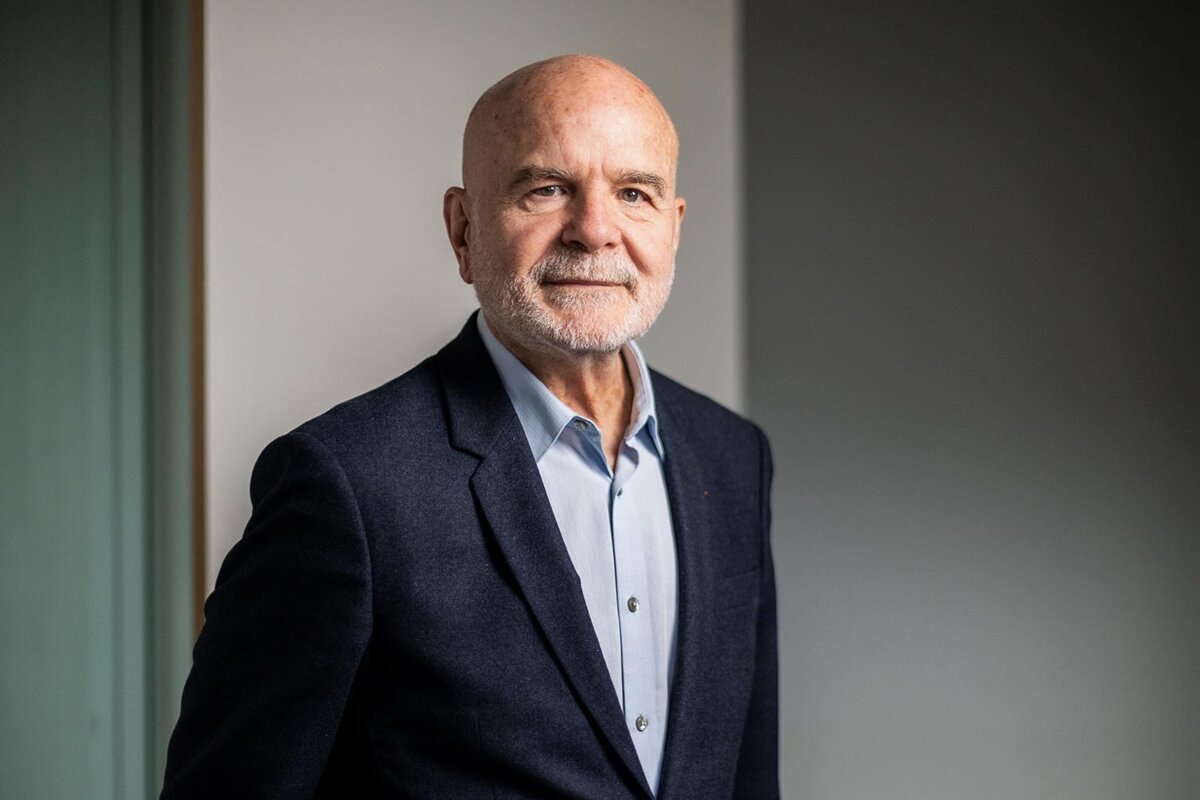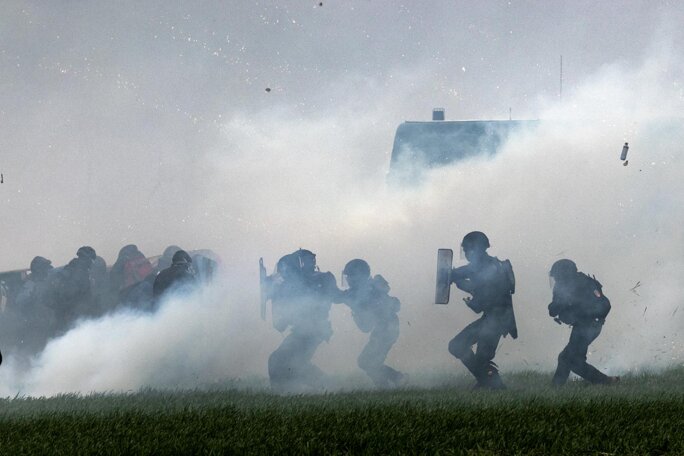Michel Forst is the United Nations Special Rapporteur on Environmental Defenders, a post he has held since June 2022 after serving for six years as UN Special Rapporteur on the situation of human rights defenders.
At the end of March 2023, a few days after the clashes that occurred during demonstrations against the building of a large-scale crop irrigation reservoir at Sainte-Soline in western France, the French official spoke out to denounce what he called a “largely disproportionate” police response. Speaking more generally, he also “shared concern about the way force is used in France when handling demonstrations”.
Speaking to Mediapart now, Michel Forst looks back on our recent revelations, published in conjunction with Libération newspaper, about the policing strategy deployed that day and the previously unseen footage from gendarmes’ body cameras that documents a frenzy of violence from officers.

Enlargement : Illustration 1

Mediapart: You had already spoken out to criticise the French state’s response to the demonstrators at Sainte-Soline. What's your reaction to these new images? What fresh insight do they provide in your view?
Michel Forst: The body camera videos from the gendarmes revealed by Mediapart and Libération confirm, in a damning manner, what I'd already said on March 30th 2023: that the disproportionate use of force at Sainte-Soline was not an accident but was indeed the result of a deliberate law-enforcement strategy.
These images show grenades being directly aimed, even though this is strictly banned as it can be deadly. They reveal explicit orders from the hierarchy encouraging these unlawful practices. They show open delight at the injuries caused, with chilling remarks such as “we have to kill them”, “I hope you blinded one” and “I’ve waited ten years in the gendarmerie to experience this”.
These videos are not simple cases of “individual misconduct”, as the government would have us believe. They expose a failed chain of command and an institutional culture in which violence against defenders of the environment is not only tolerated but encouraged.
Defenders of the environment are not a threat to democracy. The repression they face is.
Let's recall the facts: more than five thousand grenades fired in a few hours at largely peaceful demonstrators, two hundred injured, four of whom nearly died, and emergency teams prevented from doing their work. The human toll was tragic. Serge D., who was struck on the head, suffers from irreversible after-effects.
France is a signatory to the Aarhus Convention, which guarantees that people exercising their rights in environmental issues must not be “penalised, persecuted or harassed”. Peaceful civil disobedience is recognised under international human rights law as a legitimate form of exercising fundamental freedoms.
An administrative inquiry [editor's note, which has been ordered by interior minister Laurent Nuñez] won't be enough. These videos show offences of a criminal nature. They call for judicial proceedings against those responsible, at every level of the chain of command. They require a deep reassessment of France’s policing doctrines. Defenders of the environment are not a threat to democracy. The repression they face is. Sainte-Soline is a tragic illustration of this.

Enlargement : Illustration 2

Mediapart: On the eve of the gathering, Gérald Darmanin, who was interior minister at the time, said on CNews television news channel: “We'll see extremely tough images.” Do these new videos, which show the involvement of the gendarme hierarchy, confirm that there was a form of premeditation in the violence?
M.F.: I can't read the mind of the minister of the interior at the time, so I don't know what he was thinking when he said that. But I do remember saying that these events looked like a self-fulfilling prophecy.
This police violence was, indeed, unsurprising given that it had been announced by the minister. And when one looks at the footage showing how the forces and their equipment were positioned on site to respond to the demonstration, it clearly raises serious questions. But I won't go so far as to say it was a deliberate intention.
Mediapart: These images also stand out because of the contempt and hatred shown by several gendarmes who insult demonstrators and rejoice at their injuries. What do these moments reveal about the relationship between the police and the protesters? Do you find this in other countries?
M.F.: Clearly, police violence is something rather unique in France. I've travelled widely across EU countries and haven't seen a police response comparable to what we see in France. There's genuine violence that raises real questions about how the hierarchy controls the behaviour of gendarmes and other members of the forces of law and order.
Your question actually takes me to the real issue: has labelling these environmental activists as “eco-terrorists”, “green Khmers”, had an influence? Because even if some demonstrations might have been infiltrated by violent elements - who, in my view, are not environmental activists - these people were entirely peaceful.
This violence therefore fits into a wider context that I have documented in my reports as Special Rapporteur. The criminalising language of the then-minister of the interior, Gérald Darmanin, who called demonstrators “eco-terrorists” even before the protest, created a climate in which the police felt authorised to use excessive force with complete impunity.
Can describing them as dangerous criminals lead some police officers to think “if they're criminals, we'll treat them as criminals”, and therefore to “let themselves go”?
What's at issue, then, is the impact of public statements. And in my view, it really matters. I regret seeing ministers, MPs and political figures treat non-violent environmental activists with such contempt when all they're trying to do is freely exercise a basic freedom: the freedom to demonstrate.
*
- The original French version of this interview can be found here.
English version by Michael Streeter


